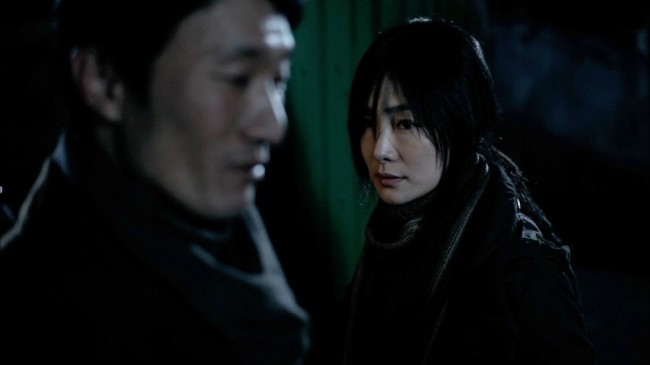48 Meters: Between life and death
2013-07-03 19:39
Located on the border between North Korea and China, the Amnok River, or Yalu River in Chinese, separates the two countries by just 48 meters.The river is the shortest route of escape for many North Korean defectors, who risk their lives to cross the border to China. Tens of thousands of North Korean defectors are currently believed to be hiding in China, where many of them are caught and repatriated to the North to face severe punishment, torture and even execution.
An upcoming film, titled “48M,” captures the devastating circumstances that drive North Koreans to escape as well as what happens when they get caught.
The film is co-produced and financed by a group of North Korean defectors, including An Hyuk who escaped the infamous Yodok concentration camp, and was first premiered overseas. It was screened at the U.S. Congress in Washington and the U.N. Human Rights Commission in Geneva in September. American human rights activist Suzanne Scholte, who has been working extensively for North Korean refugees, was involved with the U.S. promotion of the film.
 |
| A scene from “48M,” a film partially financed and co-produced by a group of North Korean defectors. (CJ Entertainment) |
“48M” was unveiled to the South Korean press for the first time on Tuesday, where it received applause from the audience ― which is rare in press screenings here.
The film is based on true stories of those who escaped North Korea; its crew, along with director Min Baek-doo, interviewed some 300 North Korean defectors currently living in the South, and created the movie’s major characters based on their stories. There are some 25,000 North Korean defectors living in South Korea.
“I cried a lot as I was writing the script,” said director Min after the press screening. “I hope the local audience would see the characters as our fellow countrymen, without thinking too much about the politics and ideology.”
The film deals with dozens of characters who try to escape their country for different reasons. One of them is a grieving father whose son went missing and became a “kkotjebi” ― a term referring to a North Korean homeless child in search of food and shelter ― in China, while he was temporarily away from home to earn money. Another character is a young woman who desperately seeks her way to China to earn money so she can get treatment for her terminally ill father.
Well-known Christian hymn “Higher Ground” is often used as the film’s background music, including a scene where a desperate wife rips out pages of her much-loved Bible to make fire so she can somehow save her ill husband who is dying of hypothermia.
The film was shot near the Jucheon River, which is on the border between Yeongwol County of Gangwon Province and Jecheon of North Chungcheong Province. “It was almost uncanny (how similar the two rivers are) because it actually takes about 48 meters to cross the river,” said director Min.
The director also stressed the importance of raising awareness about North Korean defectors and what they endure. “North Korea is only an hour away from this theater we are in right now,” he said.
“So all of these things are not happening some thousands of miles away from us. It’s crucial that we pay attention to these matters.”
A CJ Entertainment release, “48M” hits theaters on July 4.
By Claire Lee (dyc@heraldcorp.com)


